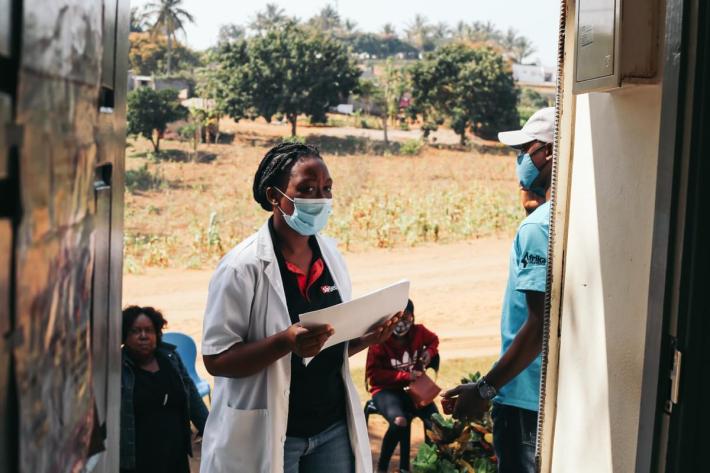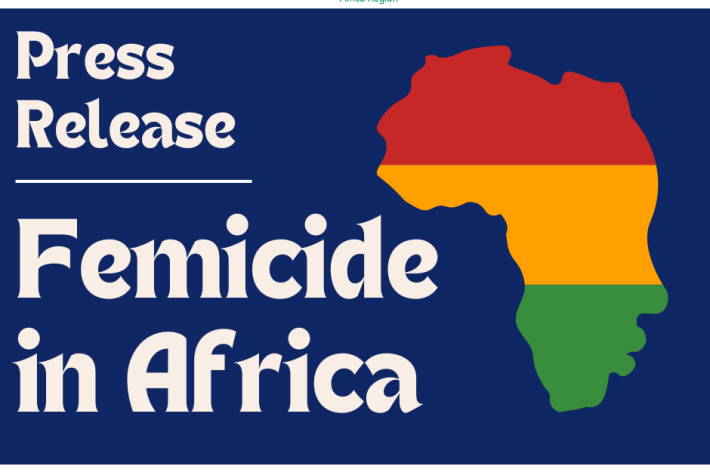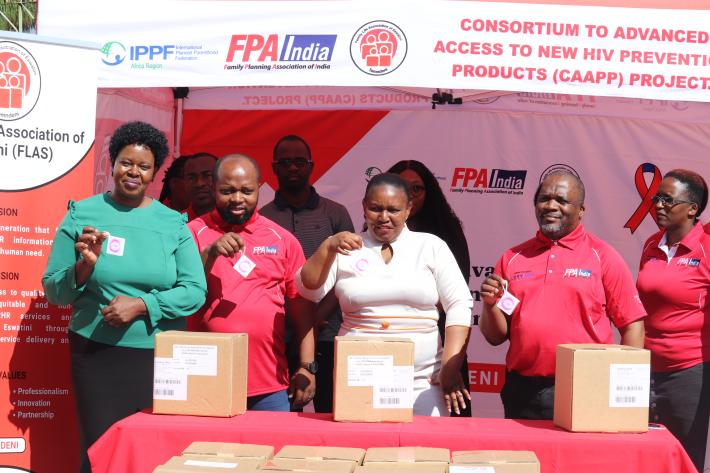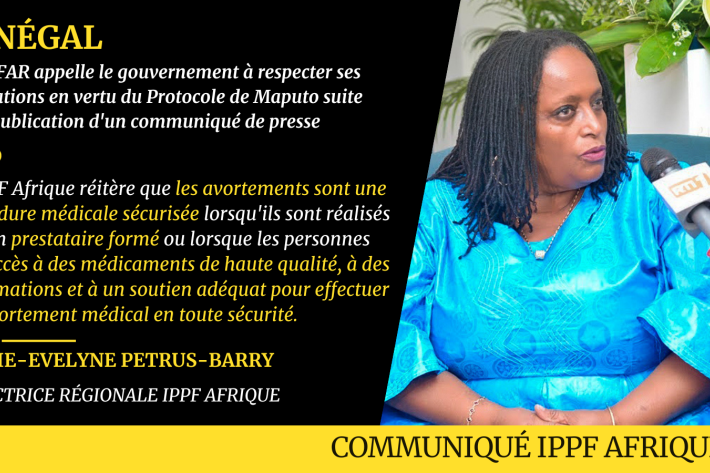Latest press releases
A selection of stories from across the Federation
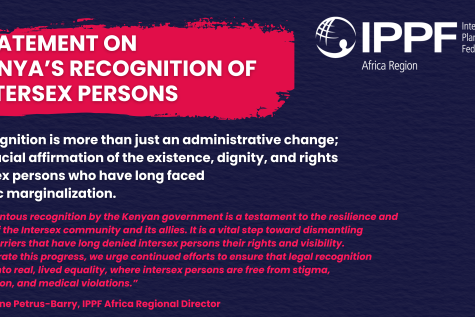
Kenya
IPPF Africa Region Welcomes Kenya’s Landmark Recognition of Intersex Persons
IPPF Africa Region Welcomes Kenya’s Landmark Recognition of Intersex Persons Nairobi, Kenya: 13 February 2025 – On 31 January 2025, Kenya has taken a groundbreaking step towards inclusivity and human rights by officially recognizing intersex as a sex marker alongside male and female in the Kenya Legal Notice 153 of 2025.


| 21 June 2024
IPPFAR Statement on the Historic Ruling of the Namibian High Court
June 21, 2024, Nairobi, Kenya - History was made today as the High Court of Namibia declared the apartheid-era sodomy law unconstitutional. The ruling also struck down all references to sodomy in other laws, including the Criminal Procedure Act, the Defense Act, and the Immigration Control Act. This monumental decision represents a significant step towards achieving a free and equal Namibia, creating a unified safe space for the LGBTQI+ community. It marks the beginning of ensuring rights, respect, and dignity for LGBTQI+ persons in the country. Namibia has a long-standing history of LGBTQI+ activism, highlighted by several landmark court cases. This latest ruling in the Friedel Dausab case, which challenged the constitutionality of the sodomy law is a testament to the relentless efforts of activists and allies who have worked tirelessly to secure equality and justice for all. The now repealed law is a relic of the colonial era, however in many countries across Africa such laws have continued to be used to target marginalised and vulnerable groups long into independence. Therefore, this ruling is both a win for the rights of LGBTQI+ persons, and the continued struggle for Africa’s independence. “We recognize the deeply entrenched impact of colonialism on the sexuality of Africans, and this court ruling is a testament not just to this win but also to breaking free from discriminatory colonial imprints within the African region. It symbolizes the collapse of a long history of colonial oppression and the restoration of dignity, pride, autonomy, and freedom for LGBTQI+ Namibians and Africans at large”. Marie-Evelyne Petrus-Barry, IPPF Regional Director, Africa Omar van Reenen, a Namibian civil rights activist and Executive Director of Equal Namibia, made a statement right after the court's declaration: "A new dawn is upon us, and equality and liberation are here. After 33 years of independence, queer people have been shackled by the colonial and apartheid-era law. The High Court today has given us a beacon of hope by declaring that these outdated laws have no place in a free Namibia. They have affirmed that we are equal citizens with every right and liberty enshrined in the constitution." The International Planned Parenthood Federation Africa Region is celebrating alongside activists, allies, and the entire LGBTQI+ community in Namibia. This victory signifies hope and the possibilities of freedom rippling through the African continent.

| 28 July 2022
Abortion hearings: What’s going on in Namibia?
Namibia is under the spotlight this month as it resumes public hearings on abortion on 16 January. This follows the hearings which took place late last year, and will hopefully play an important role in the liberalization of abortion laws in the country. The current laws regulating abortion are no longer fit for purpose – not least because the Abortion and Sterilisation Act of 1975 was adopted under apartheid South African rule and has since been repealed in South Africa. The Act currently permits abortion only in very limited circumstances, and imposes criminal penalties on women who obtain and those who perform abortions outside of this limited scope. Those who can afford it are forced to travel to South Africa for abortion care, but this option is out of reach for many women. The law, therefore, impacts far more heavily on poor and black women, perpetuating the cycle of poverty and reinforcing injustices. In 2020, 62,000 Namibians signed a petition calling for the liberalization of abortion laws, so there is certainly public backing for progress. The upcoming hearings are a key opportunity to make positive changes in the lives of all women, regardless of religious beliefs, age, race, and socioeconomic status.

| 28 July 2022
Namibia: High Court rules against same-sex couples fighting for recognition of their marriages
The IPPF Africa region is concerned by the Namibian High Court ruling on the application of non-Namibian same-sex spouses to live and work in the country. It is the latest legal battle to push for equal rights in the country. According to the High Court’s judge, Hannelie Prinsloo, the legal decision was based on an outdated law preventing the LGBTI+ community from enjoying equal human rights across the country. IPPFAR strongly encourages African Governments to review and adapt outdated laws to reflect today’s societal realities ensuring the full enjoyment of human rights for all.











